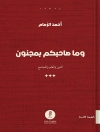In ‘Culture and Anarchy, ‘ Matthew Arnold intricately explores the interplay between culture and societal structures in Victorian England. His prose combines eloquence with critical clarity, employing a mix of historical analysis and philosophical inquiry to dissect the implications of his era’s shifting values. Arnold articulates a vision of ‘culture’ that transcends mere refinement; he positions it as a potential antidote to the moral and social chaos, contending that a truly cultured society should strive for balance between liberty and order. His engagement with the concept of ‘Hebraism’ versus ‘Hellenism’ reveals a profound understanding of the competing influences shaping contemporary thought. As a prominent Victorian poet and cultural critic, Arnold’s background as an inspectorial scholar and advocate of educational reform deeply informs his examination of culture’s role in society. He drew from his experiences within the educational system and his belief in the transformative power of art and literature, viewing them as essential to fostering a more cohesive, enlightened community. His intellectual lineage reflects the anxieties and aspirations of a time when Britain was grappling with modernity’s encroachments. Highly recommended for scholars and general readers alike, ‘Culture and Anarchy’ challenges us to reflect on our own societal values and the role of culture in navigating contemporary issues. Arnold’s compelling argument remains relevant, inviting readers to reconsider how cultural pursuits can enhance social cohesion and personal fulfillment in an increasingly fragmented world.
เกี่ยวกับผู้แต่ง
Matthew Arnold (1822–1888) was a distinguished Victorian-era poet and cultural critic renowned for his intellectual prowess and profound influence on 19th-century literature. Son of the famous Thomas Arnold, headmaster of Rugby School, Arnold’s upbringing was steeped in intellectual pursuit. After graduating from Balliol College, Oxford, he embarked on a career in education, which paralleled his endeavors in literary criticism and poetry. Perhaps best known for his seminal work ‘Culture and Anarchy’ (1869), Arnold explored the conflict between human perfectionism and social upheaval, prescribing culture as the antidote to society’s ills. Through this text, he coined terms like ‘Philistinism’ to critique the prevailing materialistic values and ‘Hebraism’ to highlight rigor and obedience. His refined prose and incisive analysis of the societal fabric have left an indelible mark on the study of culture and social theory. Arnold’s literary style, characterized by a blend of eloquence and moral profundity, infused his criticism and poetry with a distinct clarity and depth that resonated with Victorian sensibilities. He was also known for other works such as ‘Essays in Criticism’ and poems like ‘Dover Beach’, which reflect his contemplative nature and his preoccupation with the erosion of faith in an increasingly scientific era. Arnold’s legacy lives on, as his writings continue to be a subject of scholarly interest and a touchstone for cultural studies.












